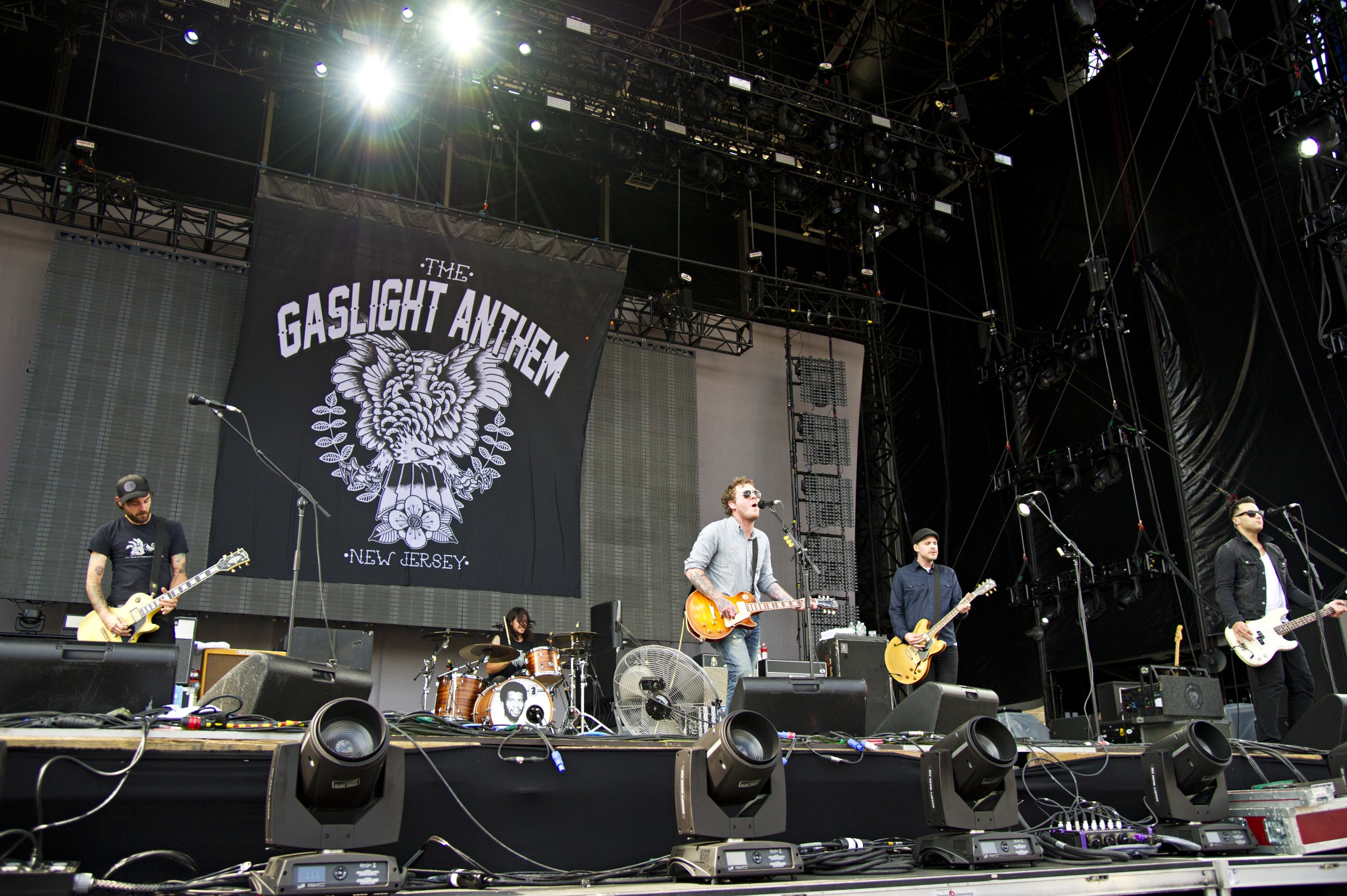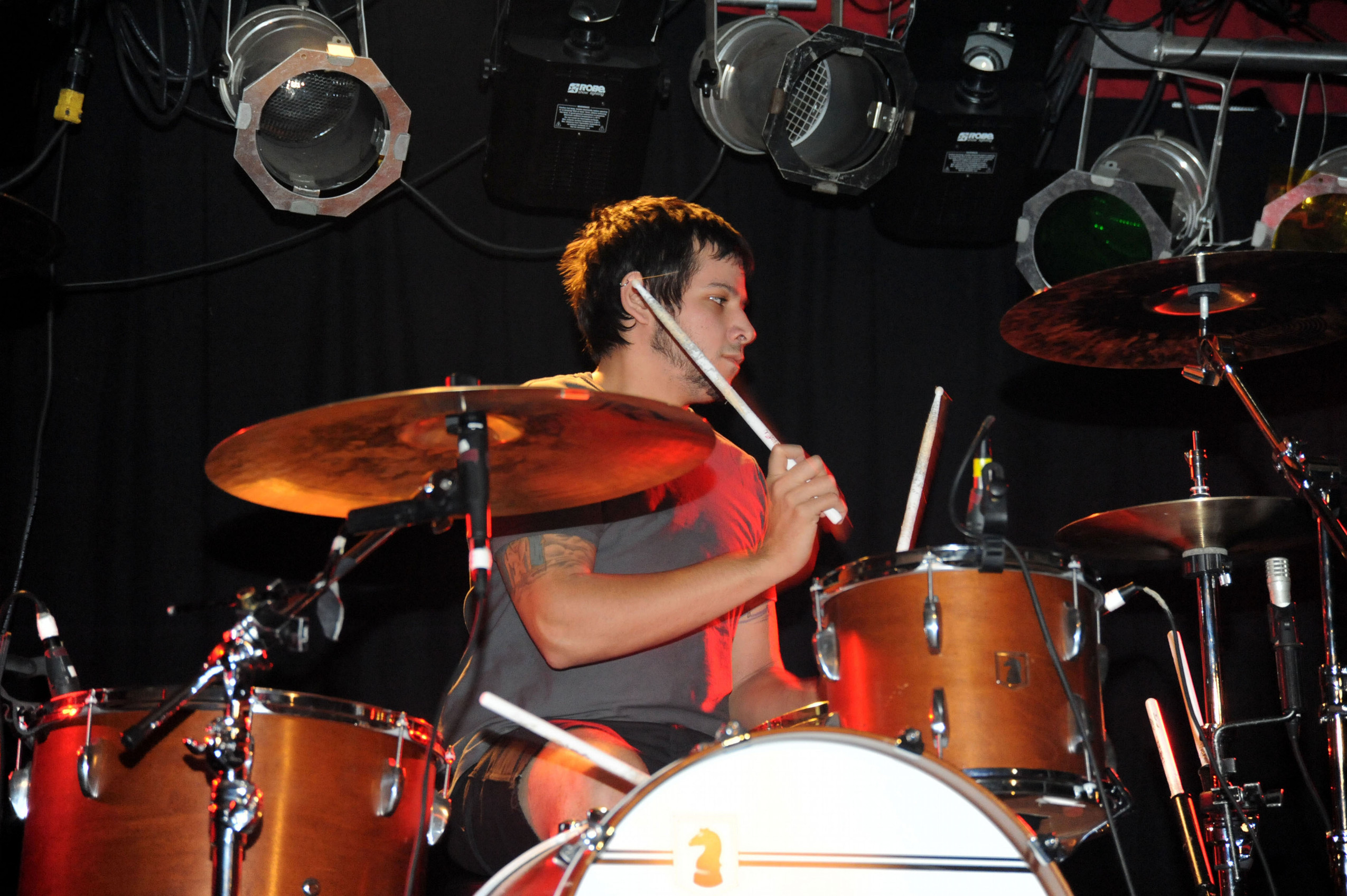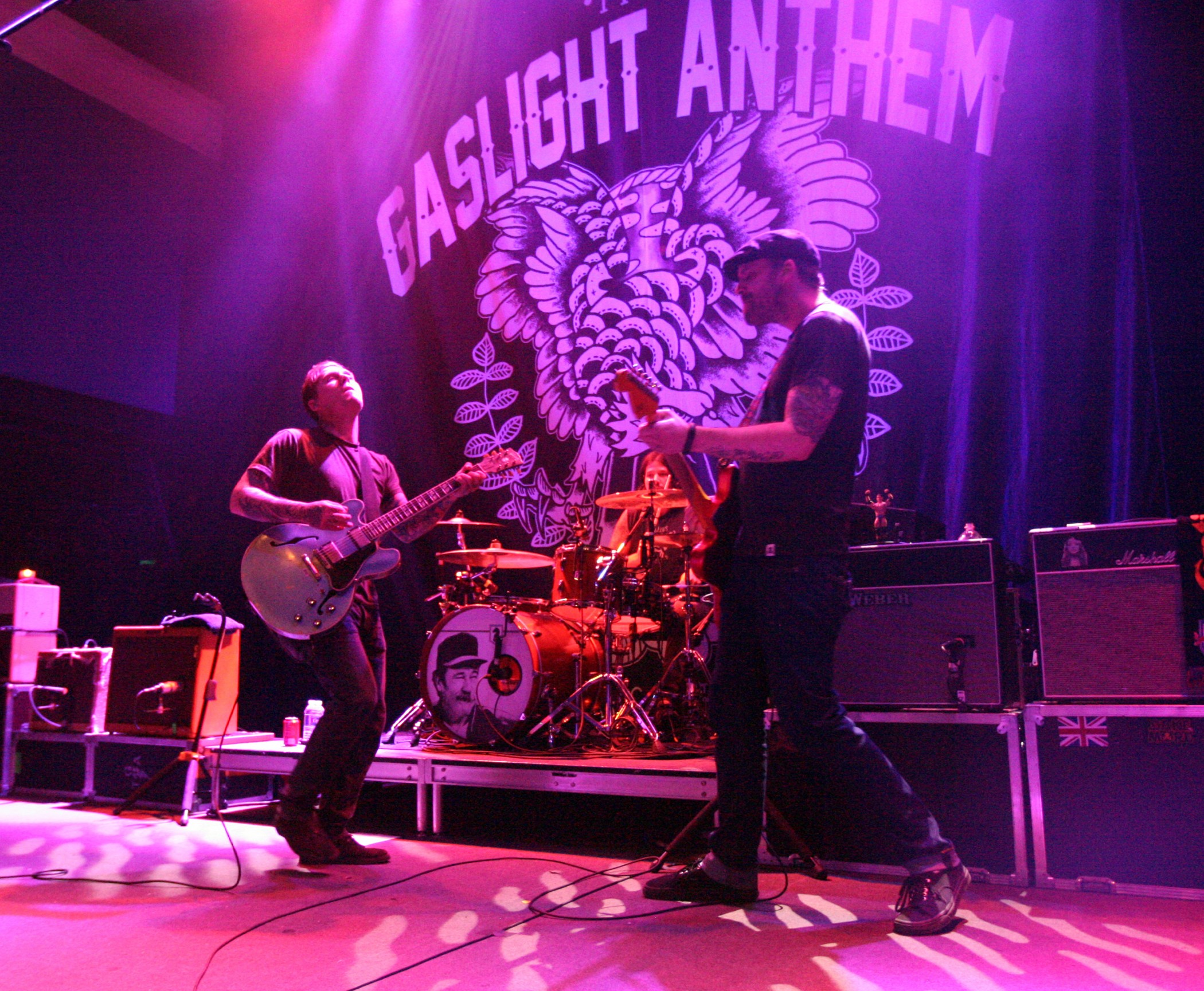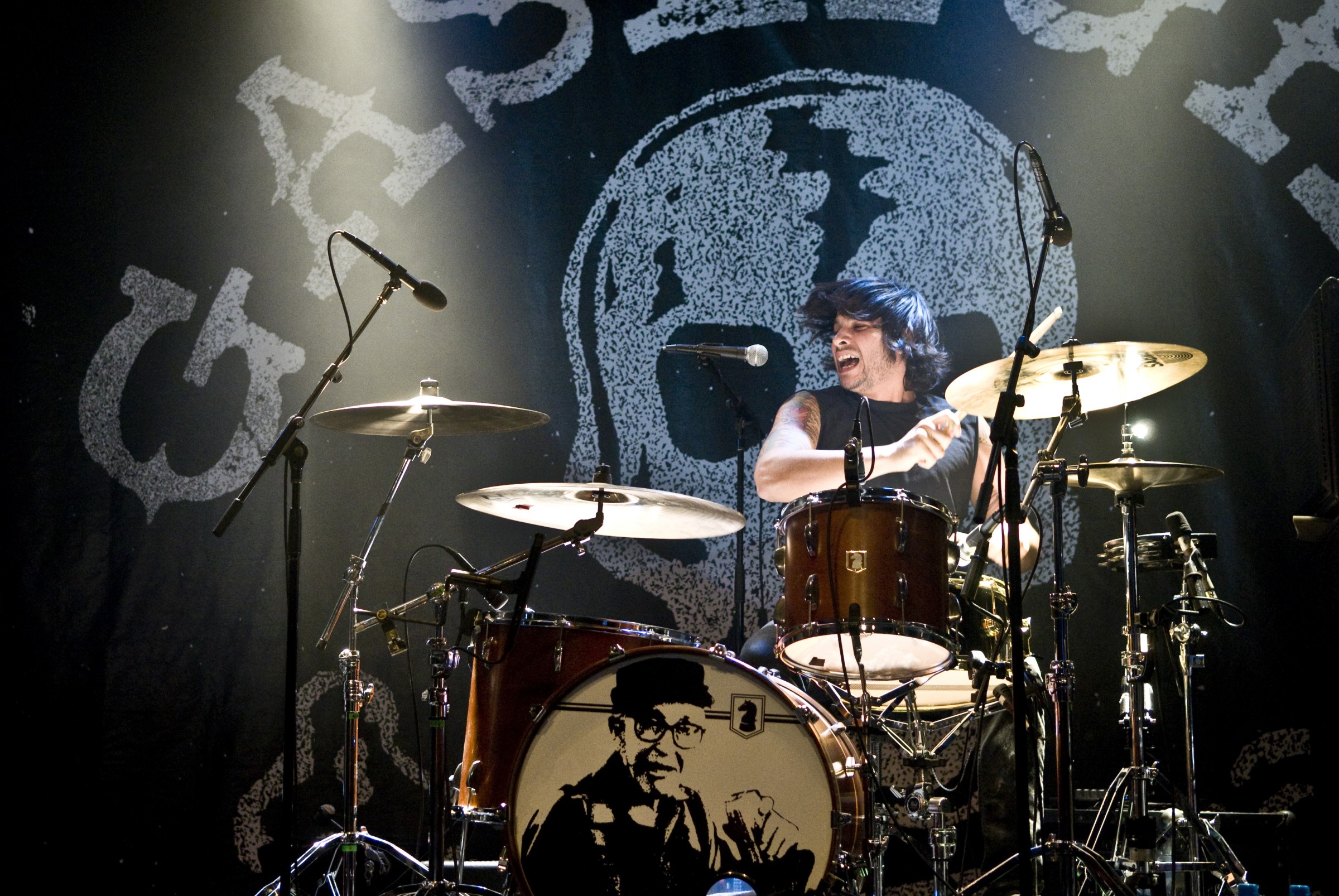5 things you need to know about the new Gaslight Anthem album
Drummer Benny Horowitz fills us in

Five things you need to know about the new Gaslight Anthem album
Gaslight Anthem return this August with their fifth album, Get Hurt. The record sees the band flex their creative muscles and dart away from their tried and trusted sound. We spoke to drummer Benny Horowitz to get the scoop on all you need to know about Get Hurt.

Benny serves the song
"If you start adding elements to the music, that is when it is more important to find your place. If you’ve got four different guitars and a strong vocal melody with back ups, I don’t want to hear busy drums on a song like that. I want something to keep your head going. You have to listen to what everyone else is going.
"I do enjoy having the time to get the right feel for the songs. I don’t like over-listening because then I'll start getting lost into the version that I have, which can be dangerous. Sometimes when you just get into a room with a riff and hash it out, it can work but more often than not it won’t work."

It takes the band out of their comfort zone
"The idea to branch out was certainly conscious. We started putting songs together in a different way, and maybe we’d mess about with structures compared to how we would usually do things.
"But at the same time, you need to be able to grow, adapt and get better as a musician to be able to pull that stuff off. I think it’s presumptuous of bands when they say they’re going to try a whole new sound; they think that the first time they attempt to record that sound it will be as good as people who have been doing it forever.
"We definitely made a conscious effort to step out of our comfort zone and challenge ourselves. But we didn’t want to take such a large step that it was an unrecognisable sound."

Benny waves goodbye to big kicks
"As big of a Led Zeppelin fan as I am, I’m getting a little averse to those massively oversized kick drums. I don’t think they’re very functional sound-wise.
"They look super cool, but to get the right feeling out of them, for me, you have to tune them too high. I also like playing a rack tom directly over my kick, so getting anything taller than 22” throws me off more than I’d like.
"I used my Dark Horse kit – the rack and floor from that quite a bit. The studio had some great loose drums around, like a couple of Slingerland kits and a Gretsch kit. We switched snares a lot. We found a really nice Brady in the studio that we used for a bunch of stuff. I was doing some hip-hop stuff last winter and needed a crackier snare, so I bought this all metal Slingerland. It was a cheapy from Guitar Center, but it sounded great and it really cracks, so we used that."

It was demoed over email
"We very rarely work in the studio as far as writing goes. I don’t understand why a band would prefer to write the songs in a place where it costs thousands of dollars a day – that never seemed sensible to us. We always like to be well rehearsed and know what we want to do before we get in there.
"We’ve been writing for quite a while. We wrote a couple of songs on the road, and then when we got home Brian really started working hard and demo-ing new ideas. Two of us actually live over an hour away from the other two guys now, so a lot has been done on e-mail. Brian will have an idea and a demo, he’ll send it to us, we’ll get our ideas together and think what we want to do.
"Eventually, when there’s enough material, we’ll get together in a room and work it out live. That was most of the writing process for this record. There were a couple of songs where we went into the studio not knowing how the song was going to pan out. We’d go in and do a couple of different passes and see how it went."

Benny doesn't mind if you don't like it
"You work on something in this super-insular environment for six or nine months with only a few people knowing what you’re up to. Then boom – one day it’s out there in the court of public opinion.
"I know this sounds like bullshit, but it is true: If me and the guys in the band and the people who worked on the record are excited and behind it and feel it, then I kind of don’t give a fuck what happens after that. If you base your intentions on writing music based on what the reaction is going to be, then you won’t write good music. I hope people like it, and I think they will, but I don’t live and die by the response."
Rich is a teacher, one time Rhythm staff writer and experienced freelance journalist who has interviewed countless revered musicians, engineers, producers and stars for the our world-leading music making portfolio, including such titles as Rhythm, Total Guitar, Guitarist, Guitar World, and MusicRadar. His victims include such luminaries as Ice T, Mark Guilani and Jamie Oliver (the drumming one).
